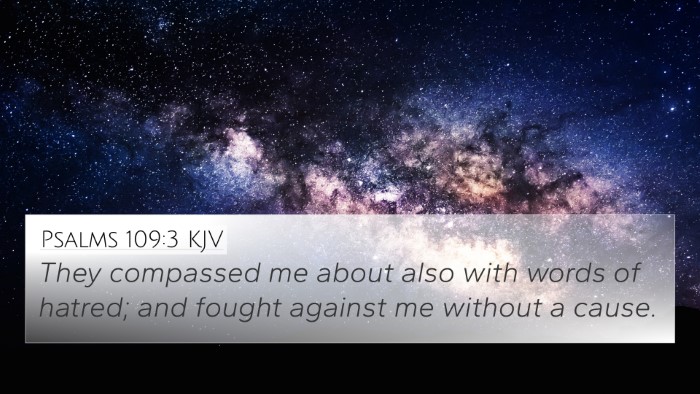Understanding 1 Samuel 25:21
1 Samuel 25:21 states: "Now David had said, 'Surely in vain I have guarded all that this fellow has in the wilderness, so that nothing was missed of all that belongs to him. And he has repaid me evil for good.'" This verse captures a significant moment in the narrative surrounding David's interactions with Nabal, highlighting themes of betrayal and the complexities of human relationships.
Summary of the Verse Meaning
The verse reflects David's feelings of frustration and disappointment after protecting Nabal’s possessions, only to be met with ingratitude. This scenario illustrates a broader biblical theme of loyalty versus betrayal, where good deeds are not met with reciprocal kindness.
Commentary Insights
-
Matthew Henry's Commentary:
Henry emphasizes the theme of unfair treatment. He notes that despite David’s goodwill, he faced ingratitude, which serves as a reminder that even the righteous can encounter injustice. David was justified in his anger, as his actions were intended for the good, yet he received hostility in return.
-
Albert Barnes' Notes:
Barnes discusses David's sense of betrayal more deeply, suggesting that this moment prepares the reader for the implications of Nabal's behavior. He further notes that David often faced such hardships, foreshadowing the challenges he would continue to experience in his life and reign.
-
Adam Clarke's Commentary:
Clarke offers an examination of David's character, stating that his response to Nabal’s insolence shows the human side of David's leadership. Although he was a man after God’s own heart, this passage reveals his vulnerability to disappointment and emotional distress.
Thematic Bible Verse Connections
This verse can be cross-referenced with various other scriptures that explore the themes of betrayal, ingratitude, and the consequences of ungodly behavior:
- Psalm 37:1-2: A reflection on not fretting over evildoers.
- Proverbs 17:13: Warns that evil can return upon those who repay good with evil.
- Luke 6:33: Jesus teaches on loving those who do good to you.
- Romans 12:17-21: Guidance on overcoming evil with good.
- Job 30:9-10: Job experiences similar betrayal and rejection.
- Matthew 5:44: Jesus instructs to love one’s enemies and pray for those who persecute you.
- 1 Peter 3:9: The call to bless others, even if they repay evil.
Inter-Biblical Dialogue
An analysis of 1 Samuel 25:21 in light of other scriptures showcases a consistent biblical dialogue about human conduct—both righteous and wrongful. These texts provide a framework for understanding how interpersonal behavior is viewed by God and how it impacts relationships.
Tools for Bible Cross-Referencing
To further engage with these themes and explore connections between Bible verses, several tools and resources can be utilized:
- Bible concordance for word searches.
- Bible cross-reference guide for linking related passages.
- Cross-reference Bible study methods for in-depth understanding.
- Bible reference resources for comprehensive themes exploration.
Conclusion
In summary, 1 Samuel 25:21 offers deep insights into the complexities of human relationships and the themes of betrayal and ingratitude in the Bible. By exploring this verse through various commentaries and cross-referencing with similar passages, one can gain a more profound understanding of God's expectations for our conduct and the challenges we may face in our dealings with others.


















